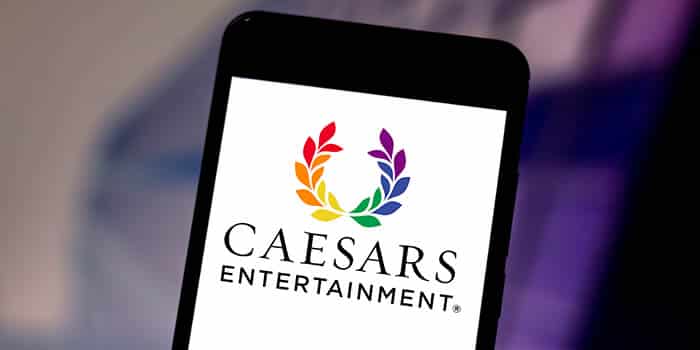Caesars Digital Valuation Surges: Could Exceed $9.6 Billion!

URGENT UPDATE: A new analysis reveals that Caesars Entertainment’s digital division could be worth more than the entire company itself. According to David Bain, an analyst at Texas Capital, Caesars Digital could see its valuation soar to as high as $9.6 billion, surpassing the parent company’s current market value of approximately $5.3 billion.
Bain’s projections are based on various enterprise value-to-EBITDA ratios for the digital sector. Even with conservative estimates, Caesars Digital’s valuation is pegged at around $6.25 billion if the expected earnings for 2026 materialize. In stark contrast, when compared to industry leaders like DraftKings and Flutter Entertainment, the valuation could spike to an astonishing $9.6 billion.
This revelation comes at a pivotal time as Caesars’ stock price has not reflected the true potential of its digital operations. Bain suggests that the company’s board may take action to highlight the digital division’s real worth by next year, particularly amid growing pressure from activist investors, including Carl Icahn, who argue that the market is undervaluing this sector.
The urgency of this situation is underscored by Caesars Digital’s recent performance. In the second quarter alone, revenue surged by 24% to reach $343 million, with EBITDA climbing to $80 million. Such growth has reignited discussions about the potential spinoff of the digital business, a move that could significantly alleviate Caesars’ hefty $11.3 billion debt burden.
Selling a substantial portion of its interactive division could unlock billions in savings for Caesars. Bain estimates that offloading 80% of the digital business at the lowest valuation could reduce the company’s debt by $5 billion. This strategic maneuver would not only lower leverage ratios but also boost annual free cash flow by about $350 million.
While Caesars currently trails behind competitors like DraftKings and FanDuel in sports betting, the company is making significant strides in the more lucrative iGaming space. Recent upgrades to its Caesars Palace app, which now ranks third in industry tests, and the introduction of the Horseshoe brand have been crucial to its success. The company is also optimizing its operations by better integrating online and offline offerings through its casino hosts.
Bain maintains a “buy” rating for Caesars with a price target of $59, more than double its current trading price. His analysis reiterates that Caesars’ future growth may not solely depend on its physical casinos but rather on how effectively it capitalizes on its burgeoning digital business.
As developments unfold, investors and industry watchers will be keenly observing how Caesars Entertainment navigates this potential transformation. The implications of these findings could reshape the landscape of the gaming industry and impact the financial futures of stakeholders involved.






